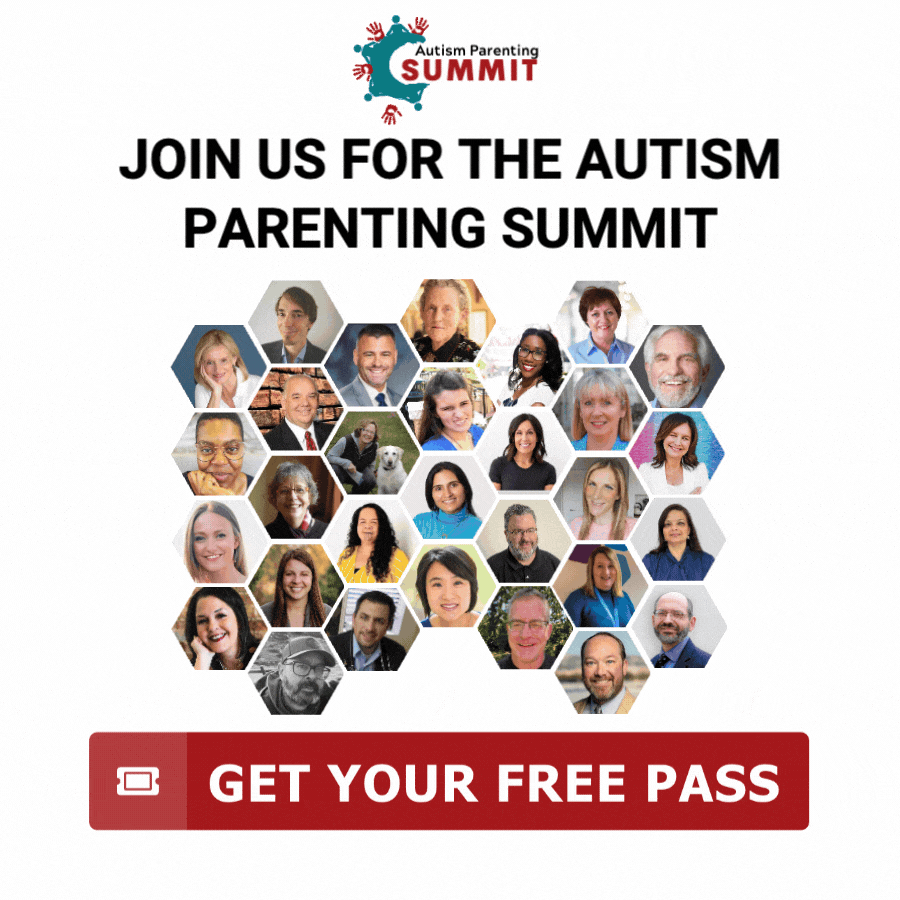Diagnosis, earliest possible intervention and finding the best available resources—supporting your child on the spectrum is well, a lot. South African parents just starting out on this journey may wonder where to start…

South African parents with special needs children often comment in awe (and envy) about the resources available to children in first world countries. When speaking to these parents, most agree: in South Africa you need to be wealthy to provide a high quality of life for your child on the spectrum.
Is this true? Surely a child with autism spectrum disorder (ASD)—already facing daily struggles to fit into a neurotypical world—should be entitled to every service available to help him/her thrive? Looking at the available resources to parents and their children on the spectrum, I decided to start my search with South Africa’s highest ranked province according to the Human Development Index: the Western Cape.
Autism services and resources in the Western Cape
To start off, I wanted to find autism resources without resorting to private (which often means expensive) services. Autism Western Cape (previously the Society for Autistic Children) is a non-profit organization focused on the needs of children with autism, along with their parents and caregivers.
Their website mentions: “We connect families affected by autism spectrum disorder to services, facilities and support.” This is exactly what parents, new to the autism journey, need. A place where they can find support and where knowledgeable professionals can connect them to the resources appropriate for their child’s unique needs.
Their services are free of charge and their website mentions post-diagnosis support at a few specific state hospitals around the Western Cape. Other services like counseling, training for caregivers, and support services for adults on the spectrum are also mentioned.
The website mentions the need for donations, which is so important as children in disadvantaged areas of South Africa are often severely stigmatized and unfortunately face a lack of understanding and compassion. Watching a video about their work in South Africa drives home a message of just how seriously a lack of resources affect inclusive services for those on the spectrum in the South African context (Autism in the South African Context, a film by Kristin Bartlett).
In the film, mention is made of children waiting up to nine months for a diagnosis. Furthermore, children sometimes face a waiting list of up to five years to get into an autism specific educational facility. The Western Cape and Gauteng are at the top of the list when it comes to resources and opportunities in South Africa. Therefore, these statistics are depressing when considering poorer provinces, where lack of health services is even more pronounced and resources are often severely strained.
Gauteng
Gauteng is South Africa’s richest province. I hoped to find more resources for parents with kids on the spectrum, especially for parents relying on government and non-profit organizations to provide the services or intervention their kids need.
The Association for Autism (AFA) is a non-profit organization founded in 1978 as the sponsoring body for a special needs school. The association’s address is in Pretoria but I could not find a website beyond an advertising board. When I looked for a phone number online I found the query of a parent reaching out about a four-year-old on the spectrum claiming the association’s phone number does not work.
It became apparent that help was not a few clicks away, at least not for parents without the cushioning of a padded savings account.
Further ‘all in one’ resources
Perhaps looking for a dedicated non-profit autism centre in each province is not the way for parents to find autism resources. Many provinces are struggling to provide basic healthcare, with diseases and conditions like TB and HIV being prioritized. Furthermore, South Africa’s economy is buckling under the pressure of the pandemic, recent unrest, and state capture.
Further research for autism resources in Johannesburg led me to Autism South Africa—whose headquarters are in Gauteng. But this non-profit organization is not exclusive to Gauteng, it includes resources and a list of service providers for all nine provinces.
Each province has a list and contact details of hospitals, doctors, psychologists, speech and occupational therapists. They are always adding referrals and also provide links to private and public schools for parents to consider.
It would be near impossible to verify or endorse the credentials and experience of all the specialists on the list. It is a great place to start when considering options for your child. Choosing a doctor or therapist should be based on research, careful consideration of word-of-mouth recommendations, and (unfortunately) sometimes the choice depends largely on availability.
Another way to find out about specialists in your area is by joining a support group for parents with kids on the spectrum. Autism South Africa’s Facebook page mentions groups in various provinces such as: Eastern Cape, Kwazulu-Natal, North-West Province, Mpumalanga, and others.
Advice and therapy recommendations are only some of the benefits of joining a local autism support group. Finding parents who understand the journey you’re on may be one of the best forms of support for those who feel isolated due to their child’s condition.
Connecting with parents for emotional support means you can join groups across the world. Autism support groups offer something most parents crave after coming to terms with their child’s diagnosis: a safe, judgement-free zone where feelings can be shared with other parents who truly understand the highs and lows of parenting a child on the spectrum.
New services and resourcing hope
There are no reliable statistics for the prevalence of autism in South Africa. Many experts believe there is little cause to think prevalence would differ from general statistics around the world. CDC statistics suggest around 1 in 54 children are on the spectrum; the above resources for austistic children in South Africa seem rather scant when such statistics are considered.
There is hope to believe, however, that as more people are educated about the neurodevelopmental condition and as the message of autism advocates spreads, more will be done to help parents get the treatment and interventions their children deserve.
Some of the latest initiatives in autism therapy are available in the comfort of your home, customized to your child’s needs. Decent therapists are no longer interested in trying to “fix” autistic children. Rather, any good therapy program is adapted to the child’s needs to ensure self-esteem is built up to promote a better quality of life.
Here are some further services and groups to take note of:
AIMS Global
AIMS Global was launched by two South African autism experts who offer online courses to support parents, professionals, and neurodivergent individuals. They also offer online or live-in therapists to their clients; and for those looking for a more affordable option, training of “therapy partners” may be a sustainable choice.
The Neurodivergent Centre
The Neurodivergent Centre was recently awarded best neuro-specialists of the year (Corporate LiveWire South Africa Prestige Awards 2020). Their website lists many services including assessment, interventions, training, support groups, and many others.
Els for autism
The former number one golfer, Ernie Els, established the Els for Autism Foundation with his wife Liezl in 2009. The couple, whose son is on the spectrum, embarked on a journey in 2011 to provide lower-income South African families with free access to effective treatment.
Their work focuses on empowering parents by teaching them, so that they can teach their children. The foundation offers programs and services (three different types of parent-led supports) but the monthly group meeting is only offered in Gauteng.
Autism resources South Africa
With two kids on the spectrum, the parents behind this website decided to share what they’ve learned with others. They are in the process of compiling an autism resource directory to help parents find what they need—as most parents with special needs children have too little time for extensive internet searches.
Free State University autism research
I feel obliged to mention my home province, a little nugget in the centre of South Africa. The Free State may not be the biggest or most important province, but the autism research being done makes it an epicentre for neurodiversity.
Dr. David Griesel (a registered developmental pediatrician) initiated the Free State Autism Support Centre (ASC) which is situated at the University of the Free State Bloemfontein Campus.
The first ever Early Start Denver Model training in Africa was presented at the ASC hosted by the Centre for Autism Research in Africa in collaboration with the Neurodevelopmental Foundation. The centre is setting the stage for advanced autism research, better diagnostic techniques and evaluations, along with early intervention in Africa.
Free online resources
After receiving an autism diagnosis for their child, parents want the latest relevant research to ensure they can support their son or daughter appropriately. The above mentioned resources may provide options to finding support but parents may also want to undertake some research on their own.
Autism Parenting Magazine has a paid subscription model but also offers a free blog full of advice. The publication consults many specialists and experts to provide information, support, real life stories, solutions, and the kind of news parents with kids on the spectrum need.
Whether you are worried about autism because of behavioral red flags, debating the merits of Applied Behavior Analysis, or considering speech therapy, the publication can be a great ally in times where reliable information takes away some of the anxiety- provoking unknowns.
South Africans on a spectrum: advocating for advanced resources
In a perfect world every child will be entitled to the best autism support, irrespective of their parents’ income or economic status. Without financial constraints, interventions could be based on the child’s strengths and streamlined to incorporate their special interests. When looking at some of the advanced autism resources available in South Africa, it becomes every advocate’s duty to appeal to government to subsidize kids who need but can’t afford life altering treatment and interventions.
Every child deserves to have their health prioritized and their needs met. Poverty, inequality and mismanagement of resources mean some of our most vulnerable kids are falling through the cracks. When you add the misinformation and stigma surrounding autism it’s easy to see why we still have a long road to acceptance and celebration of neurodiversity.
An appropriate starting place would be accurate statistics, not just estimates, of autism prevalence in South Africa. We need nationwide campaigns advocating and educating everyone about the condition. This is especially important in rural areas where parents have spoken about hiding a child with special needs to protect the child and family from negative public opinion.
But, most importantly, we need appropriate resources allocated to meet the needs of every individual on the spectrum. If funding proves to be an impossible hurdle, we need to start thinking creatively to come up with solutions to help children and adults on the spectrum.
This may seem like a pie in the sky solution but the COVID-19 pandemic showed us just how adaptable society can be. We adjusted to masks, social distancing, remote working, and many other extraordinary changes in a few years. As autism becomes more prevalent around the world (and in South Africa) we will need the same flexibility to adapt society to include and celebrate neurodivergent thinking. Beyond benevolence perhaps differently wired brains will be solvers of world problems still stumping neurotypicals…
“It always seems impossible until it’s done.” Nelson Mandela
This article was originally published by a www.autismparentingmagazine.com . Read the Original article here. .




